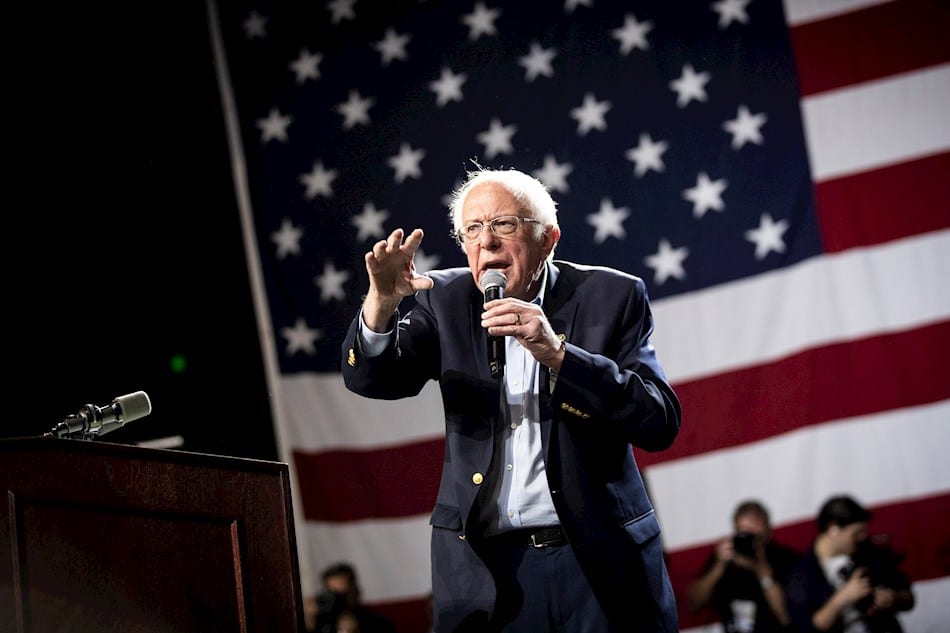
Bernie Sanders, who can become a Democratic Party candidate, defines himself as a “socialist, democratic socialist.” He praises Fidel Castro and his education policies, says Evo Morales was overthrown by a coup (“in Ecuador,” he said), and considers Maduro the legitimate president. All of this, in almost the same sentence, finished off with a curious conceptual formulation: “democratic socialism as in Sweden and Denmark.”
Such a salad of intellectual and political blunders, which are not new to Sanders, taints the debate and confuses the electorate. It also takes Bernie’s terminological confusion to different latitudes. Already in 2015, then Danish Prime Minister, Lars Løkke Rasmussen, had clarified that “Denmark has a market economy.” But now, Sanders has become an expert on Latin America, probably looking at Texas, Florida, and other states with high Latino populations.
He does it by manipulating reality. Thus, Granma, the Cuban Communist Party’s broadcasting organ, picked up the praise on its front page. Of course, they did not add that in Cuba, literacy is a requirement for a common strategy of every single-party regime: indoctrination from an early age. Everyone can read, only the party decides what they read. And this is done at all levels of the educational system.
The example illustrates that Sanders’ problem is not only what he says, but also what he omits. The voter would never know from him that the socialist world collapsed in 1989 because it was a failure in every way. Nor does he say that Scandinavian social democracy is not socialism. On the contrary, it is a very successful version of democratic capitalism: security of property rights and open markets with the highest levels of social equity, electoral competition, and individual freedoms.
Sanders perhaps ignores the reality: there has never been a political democracy under a centrally planned economy. And that “real socialism” is a mode of production that eliminates the right to private property, collectivizes agriculture, and controls the flow of foreign trade. It sets production targets according to five-year plans, a centralized system that determines levels of investment, production, and income.
In Europe’s state socialism, the plan was, in turn, broken down by year, quarter, and month, as well as by sector and company. The economy was merely a complex system of compulsory indicators. Without market signals, this system had to do without technological development, increased productivity, and improvements in the quality of goods. Targets were measured by the value of production, not by the demand for what was produced.
This transformed the party nomenclature into de facto owners of the means of production; means that they also used for personal gain. It happens that corruption is structural in a system in which the Central Committee is accountable upwards, but never downwards, to the shareholders or the citizenry. The classless society was not such. The one-party bureaucracy is the dominant elite.
Based on the above, it is logical that arbitrary expropriations and capricious confiscations, inefficient price and capital controls, and an economy suffocated by regulations generate incentives for rent-seeking behavior and the capture of the state by the partners in political power. From there to kleptocracy as a system of domination, there is only one step. And from there to the criminal state, like Venezuela, another very short step.
Of course, competitive democracy is impossible in this context. Socialism and social democracy are not synonymous because, for the latter, capitalism is not anathema, quite the contrary. First, because, as long as the rules are transparent and equitable, the market operates as an efficient mechanism of allocation for everyone, not only for power-friendly capitalists, as is the norm among 21st-century socialist societies.
Also, because the market functions as a space for socialization. It encourages individual initiative, creativity, and risk-taking, the recipe for prosperity. This, in turn, generates pluralism, without which there is no civil society in the strict sense of the term, that is, autonomous space for deliberation and aggregation of interests and identities. And without pluralistic civil society, there is no competitive party system. In other words, the idea of “democratic socialism” ends up being an oxymoron.
Sanders’ “Scandinavian socialism” is nothing more than capitalism with high individual taxation to finance the welfare state. Meanwhile, corporate taxes in Sweden, for example, are among the lowest in Europe for attracting investment. Furthermore, property rights are stable, trade is open, and the labor market is dynamic, with generous social legislation accompanied by great results in terms of productivity.
Scandinavian Social Democracy is not socialist. Rather, it is the history of democratic capitalism that socialists like Sanders- and like Maduro, Castro, Ortega, and Evo Morales– do not want to hear. And it is not that they are not capitalists, for they are, only for their ill-gotten fortunes and those of their partners, stooges, and friends.
 Versión Español
Versión Español












